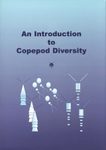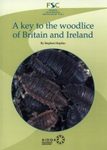![Biology and Culture of Portunid Crabs of World Seas Biology and Culture of Portunid Crabs of World Seas]()
Click to have a closer look
About this book
Contents
Customer reviews
Biography
Related titles
About this book
Biology and Culture of Portunid Crabs of World Seas provides an abundance of valuable first-hand information about the diversity, biology, ecology culture of the portunid crabs of the word seas.
Marine crabs play an important role directly or indirectly in the livelihood of millions of people around the world. They have been reported to make up about 20% of all marine crustaceans caught, farmed, and consumed worldwide. Among these marine crabs, portunid crabs or swimming crabs of the family Portunidae (Class: Crustacea; Order: Decapoda; Infraorder: Brachyura) assume greater significance in the marine industry owing to their delicate meat with nutritional qualities. Although, several species of portunid crabs are edible and commercially important, only a few species of Scylla and Portunus have been widely cultivated. This is largely due to the lack of information on the biology of portunid crabs. Keeping this in view, this new volume presents the biology and aquaculture of marine portunid crabs.
Biology and Culture of Portunid Crabs of World Seas will be of great use for researchers and students of disciplines such as fisheries science, marine biology, aquatic biology and fisheries and zoology and will also serve as a standard reference for college, university, and research libraries around the world.
Contents
- Introduction
- Biology and Ecology of Portunid Crabs
- Profile of Portunid Crabs (Family: Portunidae)
- Aquaculture of Portunid Crabs
- Nutritional Values of Portunid Crabs
- Biomedical, Food and Industrial Applications of Portunid Crab Wastes
- Diseases and Parasites of Portunid Crabs
Customer Reviews
Biography
Dr. Ramasamy Santhanam is the former Dean of the Fisheries College and Research Institute at the Tamilnadu Veterinary and Animal Sciences University in Thoothukudi, India. His fields of specialization are Marine Biology and Fisheries Environment. Presently he is serving as a resource person for various universities in India. He has also served as an expert for the Environment Management Capacity Building, a World Bank-aided project of the Department of Ocean Development, India. He was a a member of the American Fisheries Society, the World Aquaculture Society, the Global Fisheries Ecosystem Management Network (GFEMN), and the International Union for Conservation of Nature's (IUCN) Commission on Ecosystem Management, Switzerland. To his credit, Dr. Santhanam has 18 books on Fisheries Science/Marine Biology as well as 70 research papers.







































